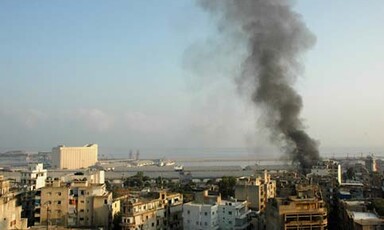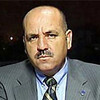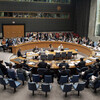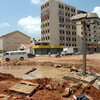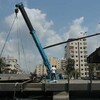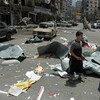
Day 6 of the siege: Notes on solidarity, Hezbollah, and Israel
Beirut 18 July 2006
Most of Beirut is in the dark. I dare not imagine what the country is like. Today was a relatively calm day, but like most calm days that come immediately after tumultuous days, it was a sinister day of taking stock of damage, pulling bodies from under destroyed buildings, shuttling injured to hospitals that have the capacity to tend to their wounds more adequately. The relative calm allowed journalists to visit the sites of shelling and violence. The images from Tyre, and villages in the south are shocking. Read more about Day 6 of the siege: Notes on solidarity, Hezbollah, and Israel

